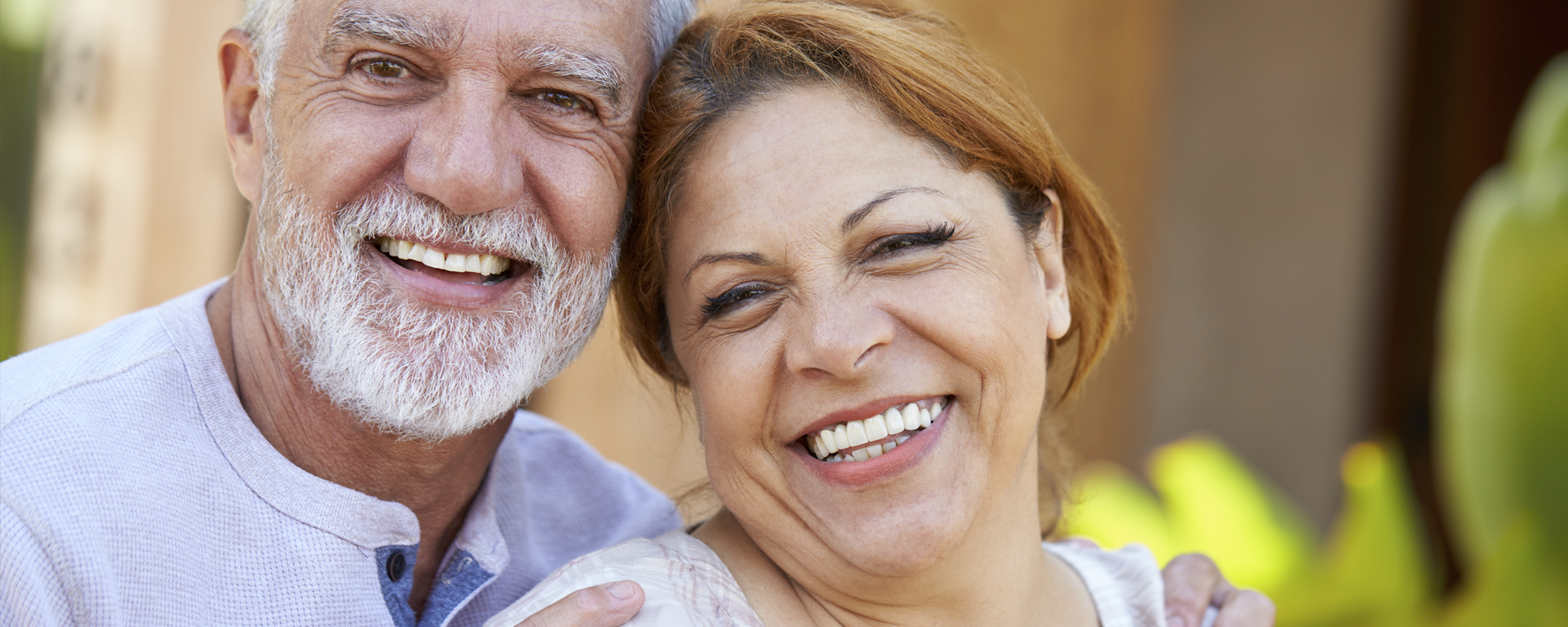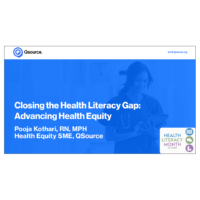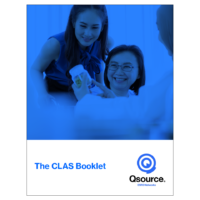
Health Equity
Qsource recognizes that Health Equity is an increasingly important part of the healthcare landscape. As patient populations become more diverse, healthcare workers and other organizations that support the well-being of those living in their communities must be prepared to meet the needs of the populations they serve.
Qsource ESRD Networks are dedicated to serving patients and stakeholders in accessing tools and services that promote the attainment of the highest level of health for all people, where everyone has a fair and just opportunity to attain their optimal health regardless of social determinants of health such as race, ethnicity, gender identity, sexual orientation, socioeconomic status, geography, and other factors.
Health Equity Tools
Non-medical social needs, or social determinants of health (SDOH), have a large influence on an individual’s health outcomes. For the medical community to have a significant and lasting impact on the health of their patients and communities, it must address the needs of patients outside the clinic walls. The EveryONE Project has resources that may be helpful for dialysis patients in need of community resources.
Search and connect to support. Financial assistance, food pantries, medical care, and other free or reduced-cost help starts here.
Additional Health Equity Resources
Health Literacy
Personal health literacy refers to an individual’s capacity to find, understand, and use information and services to inform health-related decision and actions for themselves and others, as defined by the U.S. Department of Health and Human Services, Healthy People 2030 Campaign.
Learn more about Health Literacy in the ESRD population and strategies for improvement.
Effective communication is critical to ensuring understanding, empowering patients, and providing high-quality care. A language access plan can help ensure that an organization provides high quality and appropriate language services. Learn more about Language Access Planning from the Office of Minority Health.
Qsource ESRD Networks’ Spanish Resources
The Center of Excellence on LGBTQ+ Behavioral Health Equity (CoE LGBTQ+ BHE) has created a language guide related to sexual orientation, gender identity, and expression (SOGIE) as a resource for behavioral health practitioners to better understand the most recent language used in LGBTQ+ communities.View the Guide.
Culturally and Linguistically Appropriate Services
CLAS is a way to improve the quality of services provided to all individuals, which will ultimately help reduce health disparities and achieve health equity.
Social Determinants of Health
As defined by the World Health Organization (WHO), SDoH are “the conditions in which people are born, grow, live, work and age. These circumstances are shaped by the distribution of money, power and resources at global, national and local levels” [1].
Reference: 1. WHO (World Health Organization). 2012. What are the social determinants of health? Available at: http://www.who.int/social_determinants/sdh_definition/en/ (accessed June 8, 2017).
- Rural Health Information Hub SDOH Assessment Tools
- The Accountable Health Communities Health-Related Social Needs Screening Tool
- SDOH 101 For Health Care
- Hosting Kidney-Friendly Food Drives Toolkit
- CDC | Social Determinants of Health
- NIH | SDOH: It’s Time to Consider the Causes of the Causes
- Healthy People 2030 | SDOH

 Download:
Download:  Download:
Download: